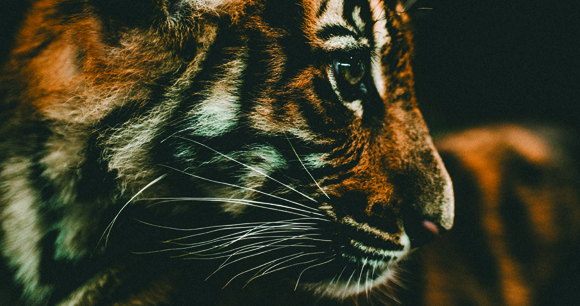Tiger King: Series Shocks but Skates Past Animal Suffering
A tiger removed from a tiny apartment in New York City by first responders after he bit his owner. Lions running down the highway after 38 big cats were released in a residential area of Zanesville, Ohio. A teenager killed in Kansas as she posed with a tiger for senior portraits. There is no shortage of drama and tragedy resulting from the exploitation of big cats in the United States.

The Netflix docuseries Tiger King: Murder, Mayhem and Madness fails to tell any of these stories, however. It explores the bizarre and unscrupulous dealings of big cat breeders and exhibitors in the United States, yet devotes only a few moments to the actual suffering of the lions, tigers, and other cats they cage, sell, and kill. Thousands of big cats are in captivity in America, largely because of operations like the Oklahoma animal park, formerly operated by Joe Exotic, featured in the series. These poorly regulated facilities, which profit from tiger petting and photo ops, fuel a rampant and vicious cycle of breeding and dumping cubs.
Cubs at these facilities are often forcibly separated from mother cats immediately after birth. Federal guidance says they can be exposed to public contact beginning at 4 weeks old. At about 12 weeks, they become too big and dangerous for petting operations and are funneled into the exotic pet trade, sold to another disreputable exhibitor, or killed—some to supply the black market trade for wildlife parts. The lives of some are particularly miserable due to genetic abnormalities. White tigers, for example, are prized by exhibitors for their unique appearance. Their coloring, however, is the result of inbreeding for a recessive gene that also causes severe health issues such as cataracts, sensitivity to light, heart defects, skull defects, and crippling hip dysplasia.The full-grown big cats who end up as pets are locked away in backyard cages or basements—their presence (often undisclosed to neighbors) in residential areas a serious threat to public safety. Since 1990, there have been nearly 380 dangerous incidents, including human injuries, maulings, and deaths, involving captive big cats in 46 states and the District of Columbia. In defusing such incidents, first responders put their own lives on the line. Often—as with the 38 cats in Zanesville—the animals die. Tiger King, however, ignores all this in order to train its lens on human salaciousness and skullduggery. The series also does a disservice to organizations working to rescue and provide lifetime care to big cats, conflating roadside zoos like those run by Joe Exotic and Doc Antle with sanctuaries that never breed, buy, or sell animals. True sanctuaries prioritize the animals’ needs over profitability and public entertainment. They house big cats in large, enriched enclosures that encourage natural behaviors. In fact, the constant breeding of big cats has placed an enormous burden on these sanctuaries, which cannot keep up with the number of animals in need of rescue.The only solution to this problem is to prohibit private ownership of big cats and physical contact between cubs and the public. AWI is working to pass the Big Cat Public Safety Act (HR 1380/S 2561), a federal bill that would accomplish this. You can help. Please visit AWI’s website to urge your members of Congress to cosponsor this legislation.
Program Terms: Terrestrial Wildlife
AWI Quarterly Terms: Feature Article, Government/Legal
Related News
IUCN Reaffirms Long-Tailed Macaques’ Endangered Status Despite Industry Pressure
In Program: Terrestrial WildlifeThe International Union for Conservation of Nature (IUCN) today released an update to its Red List of Threatened Species. The update revealed that the long-tailed...
AWI Funds Research to Alleviate Human-Wildlife Conflicts, Animal Suffering
In Program: Terrestrial WildlifeThe Animal Welfare Institute (AWI) announced today the eight recipients of its Christine Stevens Wildlife Award who are developing humane solutions to human-wildlife conflicts and...
Refuge from Cruel Trapping Act Reintroduced to Protect Wildlife and Pets on Public Lands
In Program: Companion Animals, Terrestrial WildlifeThe Animal Welfare Institute (AWI) endorses the Refuge from Cruel Trapping Act, reintroduced today in the US House of Representatives by Rep. Jerrold Nadler (D-NY)....
Colorado Now Leads Country in Comprehensive Approach to Fighting Wildlife Trafficking
In Program: Terrestrial WildlifeToday, Colorado Gov. Jared Polis signed S.B. 25-168 into law to combat wildlife trafficking. The bipartisan legislation, which is unique among states for the number...